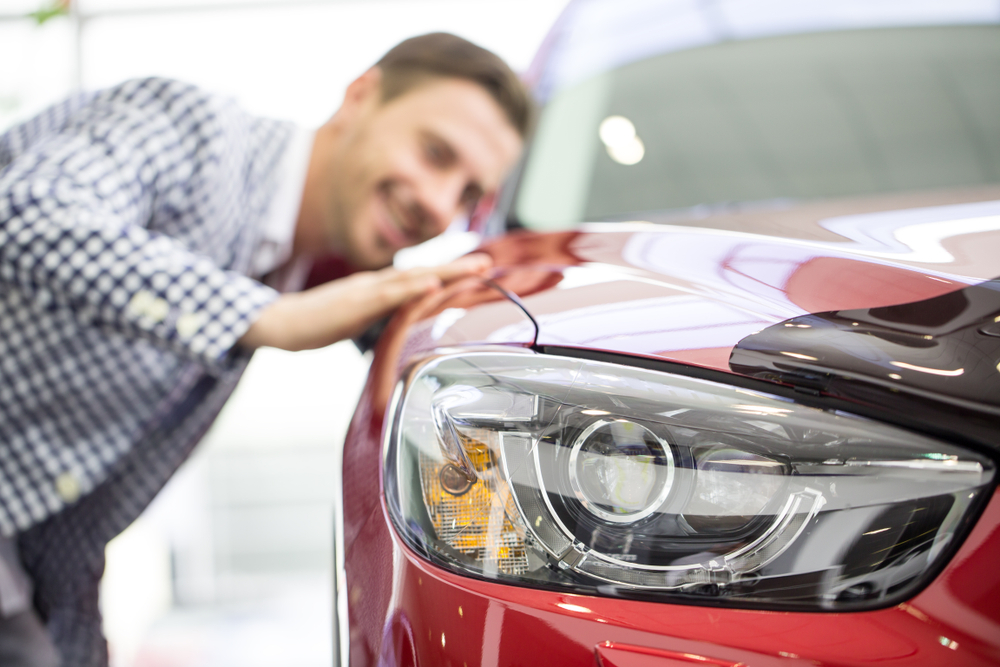Buying a new car is one of the most daunting and difficult decisions we have to make, and not only because there’s a lot of cars to choose from!
There are tons of pitfalls that buyers fall into when looking for a new car, from misjudging their needs, to dealing with dodgy salesmen or poor quality vehicles.
Whether you’re in the market for a brand new car or a used car, there are many things you need to be aware of to avoid getting exploited or getting a poor deal on your new ride.
There’s nothing worse than not being happy with a car after you’ve bought it, whether it’s a performance issue or some other unforeseen drawback. Cars are a significant investment and should be treated as such to ensure you’re not causing yourself problems down the line.
Just a little bit of research and attention can pay huge dividends and save a lot of hassle when it comes to mechanical issues, performance issues or even the deal you’re getting.
Many people have no idea what to check for and how to tell if you’re getting a good deal, so we’ve put together this guide to help you make sure you’re getting good value for money on your next car, and know exactly what to look for to make sure your car lives up to its price and expectations!
Car Purchase Checklist
Costs
Before you purchase any car, regardless of how perfect it may seem, it’s important to ensure that you’re fully aware of what it costs and how you’re going to pay for it.
Many people make impulsive decisions when it comes to cars, and this often lands people in financial difficulties which can be difficult to climb out of.
First things first, know how much the car costs, including any upfront costs, administration fees and other potential costs.
Once this is known, make sure to look into any pressing performance or mechanical needs that may need taking care of, as these costs often get passed on to unsuspecting buyers when purchasing new cars, and warranties may not cover some issues.
Consider the performance of the car and how much it will cost to run once it’s purchased. Look into everything from its miles per gallon, to how much it costs to tax and insure as well as other things such as tyre replacements and mechanical upkeep costs, as some cars are more expensive to maintain than others.
History And Performance Checklist
While many of these issues don’t apply to new cars, it’s still useful to run through the list as it will help you build a good habit and will always ensure you’re getting a good deal, regardless of whether you’re getting a new car or not.
Documentation
Always check the car has all the proper documentation, whether it’s new or used. This means ensuring it has the correct tax documents, identification numbers, and the appropriate manuals and ownership documentation.
The vehicle history is also good to have for used cars as it helps you stay aware of any existing issues with the car. Warranties and contracts fall under this category too.
Be wary of any spelling issues, missing documents or mistakes in the number plate or identification/model numbers as this can mean the car could be stolen, chopped up or anything else. If in doubt, make sure everything is correct and don’t be afraid to walk away from a deal if you’re not 100 percent convinced.
Mileage
Does the mileage, age and appearance of the car seem consistent? It can be easy to hide issues here, so take care and make sure you aren’t getting duped. Look for recorded mileage on service records and certificates if you need to, to make sure everything is consistent.
Damage
Look for everything from discoloration to mismatched panels and make a note of anything and everything which seems out of place. If these issues aren’t explained and detailed in the car’s history, it’s safe to assume there is something wrong with the car or someone is trying to scam you.
Test Drive
ALWAYS DO A TEST DRIVE. Any reputable car salesman will allow you to do a test drive, and if they don’t alarm bells should immediately start ringing! A test drive can reveal everything from faulty controls and electronics, to engine issues, ride issues, handling issues or just a general dislike of the car’s performance.
What To Bring When Inspecting Your Car
- A flashlight
- Paper towels
- A CD for the Stereo
- An auto history report
Exterior Checklist
- Windshield (chips, cracks and seals)
- Body panels (coloration and fit)
- Paint job (if fresh it could be concealing replacement panels or rust)
- All seams and seals for doors and windows
- Free of scratches and dents
- Functional wiper blades
- Functional headlights
Tyres
- Reputable brand
- All the same make and size
- Free of cracks and bubbles
- Evenly worn
- All bolts present and correct
- Spare tyre and lug/jack present and correct
- Spare tyre fully inflated and functional
Engine
- Free of leaks
- Battery free of corrosion
- Dipstick is clean and free of dark oil
- Exhaust emissions aren’t black or blue (these indicate issues with excessive oil consumption or oil burning)
Suspension
- Car rests evenly and flat
- No creaking when turning corners or getting into car
- All cornering feels consistent
Interior
- Seats are fully functional and clean
- Seatbelts work correctly
- All doors work properly
- All windows work properly
- All gauges and lights work
- Heaters and AC works
- Wipers work
- Steering wheel feels secure
- Gear stick feels secure
- Alarm is working properly
- Hazard light button and other key buttons work properly
- Indicators working properly
- Car doesn’t smell too strongly of bad smells OR air freshener which could be masking bad smells
Brakes
- Check that the brakes don’t make a bad noise of grind
- Ensure the car doesn’t pull to one side under braking
Other
- Manual located in glove box
- Service and repair record present and available
- Owner has the title to the car
If a seller rejects these inspections, definitely walk away as they are trying to scam you!

